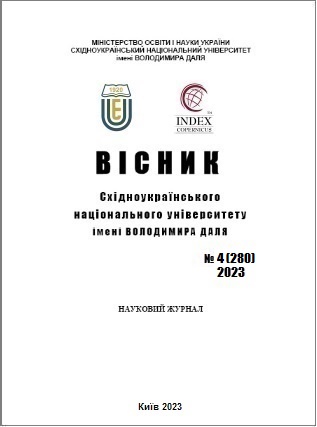Human capital and its role in ensuring economic growth
DOI:
https://doi.org/10.33216/1998-7927-2023-280-4-55-63Keywords:
human capital, investment in personnel, value of human resources, skills, productivity, efficiencyAbstract
The modern generation is in the conditions of constantly growing global changes, the peculiarity of which is that human development lags far behind the technical and economic sphere. Overcoming this lag and building a modern system of human formation and development for the purpose of increasing human capital requires improvement of the entire process. The article examines the role of human capital in ensuring economic growth. Increased attention in the work is given to the importance of education in increasing the welfare of the population and the efficiency of production in the country.
In recent years, there has been a significant acceleration in the digitization of jobs, as well as an increase in the level of competition in global markets, which creates the need for constant innovation and the accumulation of human capital. Companies attach great importance not only to financial strength, but also to "knowledge", namely intellectual capital. The demands on new generations, who will have a higher level of technological prowess, also come with challenges. To stand out among competitors in the intellectual capital market and make their corporate presence in the sector visible, companies must choose employees who add value to the business, are team-oriented, efficient, solutionoriented and have strong communication skills. The qualities of the company's employees, such as productivity, talents, creativity and potential, play an important role in the success of the company.
To improve the quality of human capital, it is necessary to constantly invest in employees, improve and improve their education, experience and abilities, this will contribute to increasing the value of human capital and the market value of both the individual and the organization. Insufficient attention to the development of human capital leads to high state and social costs, which undermines people's well-being, limits opportunities for further growth and management efficiency, and becomes a serious challenge for the country.
Ukraine needs to move to new principles of strategic development based on the high quality of life of its population and the accumulation of human capital. A comprehensive and purposeful policy of improving the quality of Ukraine's human capital is necessary.
References
1. Актуальні питання управління людським капіталом в Україні. URL: https://www2.deloitte.com/content/dam/Deloitte/ua/Documents/Press-release/amcham-2022-deloittehuman-capital-research_ua.pdf
2. Мілль Дж.С. Основи політичної економії і деякі аспекти їх застосування до соціальної філософії. У 3-х т. М.: Прогресс, 1980-1981.
3. Петті В. Економічні та статистичні роботи. М.: Соцекгіз, 1940.
4. Рікардо Д. Начала політичної економії і оподаткування. Соч. т. 1. М., 1955.
5. Сміт А., Васильєв О., Межевікіна М., Малівський А. Дослідження про природу і причини багатства народів. Київ : Наш формат, 2018. 736 с.
6. A Project for the World. URL: https://www.worldbank.org/en/publication/humancapital
7. Becker G. S., Philipson T. J., Soares R. R., "The quantity and quality of life and the evolution of world inequality," American economic review, Vol. 95, No. 1, 2005. pp. 277-291.
8. Building Human Capital. URL: https://elibrary.worldbank.org/doi/10.1596/978-1-4648-1328-3_ch3
9. Guide on Measuring Human Capital.United Nations publication. United Nations Economic Commission for Europe. United Nations, 2017. p. 154. URL: https://unece.org/DAM/stats/publications/2016/ECECESSTAT20166_E.pdf
10. Human Capital Definition: Types, Examples, and Relationship to the Economy. URL: https://www.investopedia.com/terms/h/humancapital.asp
11. Human Capital Depreciation. Michael Dinerstein, Rigissa Megalokonomou, and Constantine Yannelis. October 2020. URL: https://bfi.uchicago.edu/wpcontent/uploads/2020/10/BFI_WP_2020146.pdf
12. Lucas R.E. «On the Mechanics of Economic Development». Journal of Monetary Economics. 1988. № 22. P. 3-42.
13. Mankiw G., RomerD., Weil D. Contribution to the Empirics of EconomicGrowth. NBER Working Paper. December, 1990. № 3541.
14. Romer P.M. Increasing Returns and Long-Run Growth. P.M.Romer. The Journal of Political Economy. October, 1986. P. 1002-1037.

